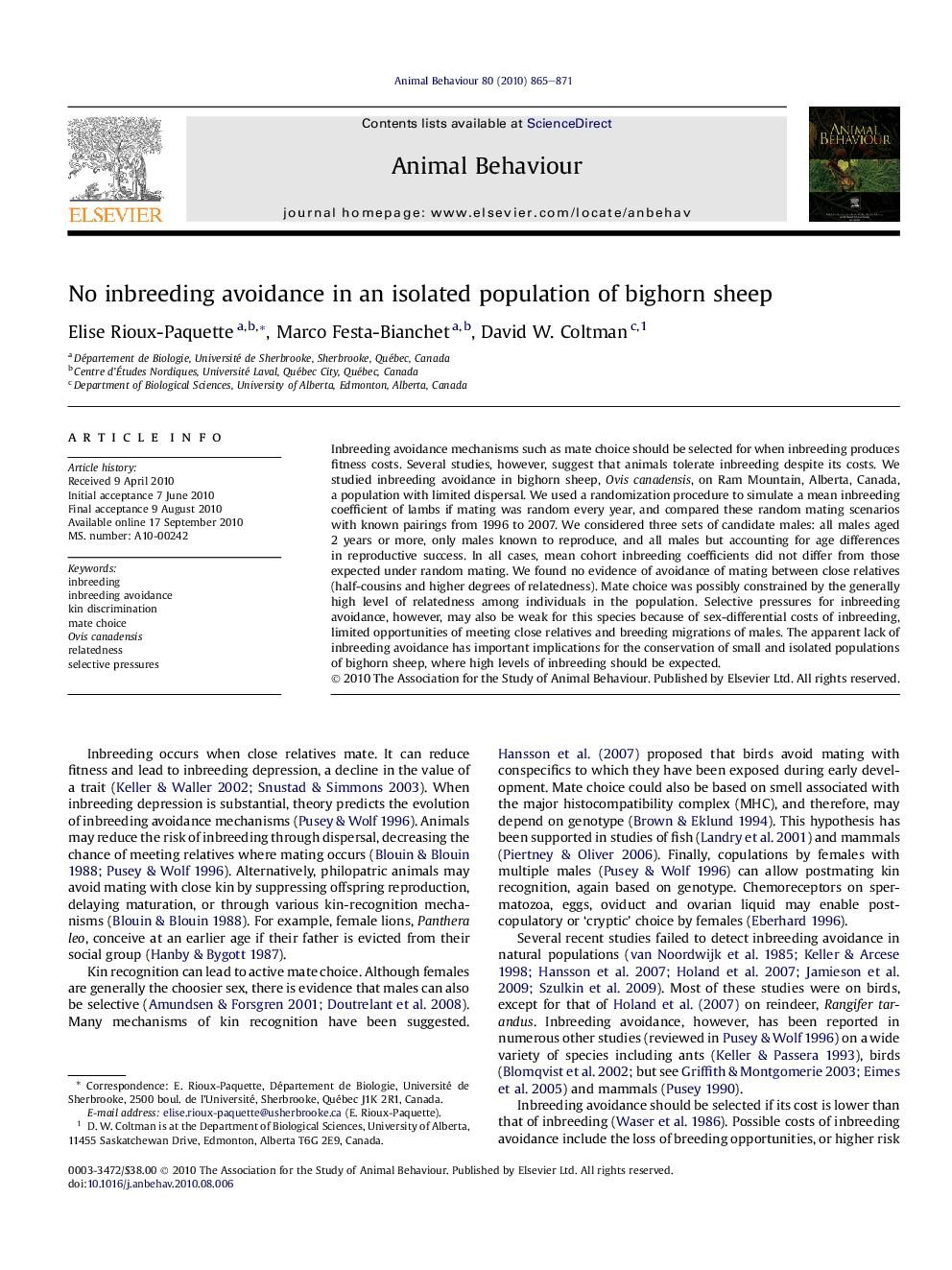| Article ID | Journal | Published Year | Pages | File Type |
|---|---|---|---|---|
| 2417174 | Animal Behaviour | 2010 | 7 Pages |
Inbreeding avoidance mechanisms such as mate choice should be selected for when inbreeding produces fitness costs. Several studies, however, suggest that animals tolerate inbreeding despite its costs. We studied inbreeding avoidance in bighorn sheep, Ovis canadensis, on Ram Mountain, Alberta, Canada, a population with limited dispersal. We used a randomization procedure to simulate a mean inbreeding coefficient of lambs if mating was random every year, and compared these random mating scenarios with known pairings from 1996 to 2007. We considered three sets of candidate males: all males aged 2 years or more, only males known to reproduce, and all males but accounting for age differences in reproductive success. In all cases, mean cohort inbreeding coefficients did not differ from those expected under random mating. We found no evidence of avoidance of mating between close relatives (half-cousins and higher degrees of relatedness). Mate choice was possibly constrained by the generally high level of relatedness among individuals in the population. Selective pressures for inbreeding avoidance, however, may also be weak for this species because of sex-differential costs of inbreeding, limited opportunities of meeting close relatives and breeding migrations of males. The apparent lack of inbreeding avoidance has important implications for the conservation of small and isolated populations of bighorn sheep, where high levels of inbreeding should be expected.
